 What Can You Expect When You Call?
What Can You Expect When You Call?
Each call to The Helpline is unique.
Some callers identify as survivors of abuse, some as abusive partners and some as concerned family members, friends and/or colleagues seeking help on behalf of someone else.
While we recognize each call is specific to the individual, here are some possible phrases and questions that counsellors use consistently to best help each caller:
“Are you in a safe location to speak with us?”
It’s critical for your safety that you reach out when your partner is not around, whenever that is possible.
If your partner does come home or walk in while you’re talking with a counsellor, immediately disconnect the call with us.
“Are you able to tell me a little bit about your situation?”
Before a counsellor can begin helping you, they need to know your specific situation. This gives you an opportunity to bring up any concerns you’ve had about your relationship.
Providing a relationship timeline or explaining a recent altercation(s) with your partner can give the counsellor a better idea about what you’ve experienced or what you’re currently experiencing.
“What have you considered doing at this point?”
You are the expert of your own situation. Callers reach out at all different times in their relationships, so counsellors need to know what steps you’re ready to take before they can help you find resources.
While a counsellor won’t give explicit advice on what you should do next, she will facilitate your options in order to make the best decision for you & your specific situation/experiences.
“Thank you for reaching out.”
You might feel anxious about contacting The Helpline, especially if you haven’t reached out for help before.
We are completely confidential and anonymous, and our counsellors have extensive training in issues related to domestic violence/abuse.
Reaching out for help is the first step toward improving your situation, whatever that may be, and we are here when you take this important first step.
“Let’s plan together.”
Whether you are planning on leaving the relationship or finding things that you can do to feel safe; there may be more than one right answer and a counsellor can help you sort through the options to determine the best one for you.
Counsellors are not judgemental or pushy, they are supportive and are available to help provide you with support based on your particular situation.
“Can I help you with anything else?”
Maybe over the course of your conversation with a counsellor you thought of an additional question, or perhaps you feel more comfortable asking something you were scared to ask before.
Counsellors are always available to answer your questions about healthy relationships and how to handle an unhealthy or abusive relationship, so don’t hesitate to ask if something comes up throughout your conversation.




